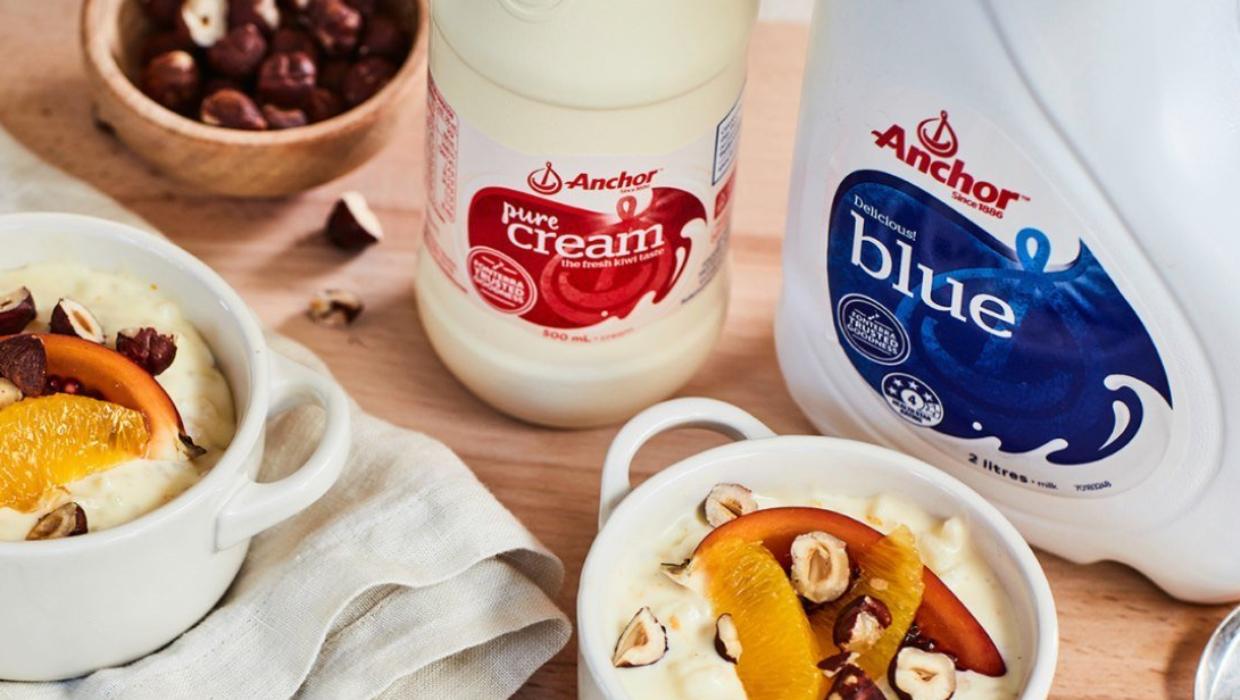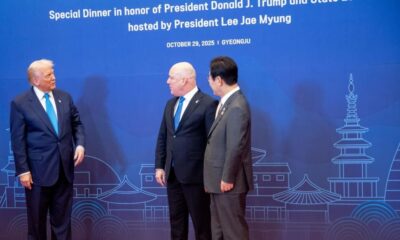Business
Fonterra’s Strategic Shift: Farmers Approve Brand Sale to Lactalis

The decision by Fonterra’s farmer shareholders to sell the cooperative’s brands business marks a pivotal moment in the company’s history. This move, finalized in March 2024, reflects the strategic direction set forth by Fonterra’s management, focusing on supplying ingredients to food manufacturers and the hospitality sector rather than maintaining ownership of its consumer brands.
As a result of this sale, iconic New Zealand brands such as Anchor, Mainland, Fernleaf, and Kapiti Fine Foods will no longer be under New Zealand ownership. The cooperative’s leadership concluded that it lacked the necessary resources and expertise to compete with large global fast-moving consumer goods (FMCG) companies in developing these brands at scale. Fonterra will continue to supply dairy ingredients to Lactalis, the new owner, under a contract that can be reviewed after three years.
The sale also involves the transfer of manufacturing facilities across the Oceania region. Lactalis intends to leverage the premium image of New Zealand dairy products to expand these brands into major global market players. Initially, consumers may notice little change, as many of these brands are often priced higher than private label alternatives.
Fonterra’s brands have deep roots in New Zealand’s dairy history. Anchor was established in Waikato in the 1880s, while Mainland originated in Otago in the 1950s. These brands, along with others like Kapiti, which was acquired by Fonterra in 2005, represent a significant part of the country’s agricultural heritage.
Despite the potential benefits of the sale, it has generated unease among certain stakeholders. Approximately 12% of Fonterra’s shareholders opposed the sale, with Winston Peters, leader of the New Zealand First party, vocally criticizing the decision. He described the sale as “economic self-sabotage” and warned that it jeopardizes long-term security for New Zealand farmers.
Peters’ concerns reflect a broader apprehension about the loss of local control over brands that have been integral to New Zealand’s identity. His critiques also question the implications if Lactalis were to source its milk supply from other regions in the future. While these concerns resonate with many, they also highlight the challenges faced by long-term commodity producers in a globalized market.
The rationale for Fonterra’s formation in the early 2000s was to create a national champion in the dairy sector, enhancing its global scale. However, the brands business has always been a secondary focus, contributing less than 10% of the cooperative’s dairy production. Fonterra now aims to concentrate on supplying high-quality commodities rather than branded retail products.
For many New Zealanders, the sale of beloved brands may evoke a sense of loss. Yet, it is worth noting that Fonterra had previously sold off the rights to the Anchor brand in Europe more than 15 years ago. The majority of farmers have expressed strong support for this decision, with the board of directors unanimously endorsing the sale.
Proceeds from the sale are expected to amount to hundreds of thousands of dollars for some farmers, primarily intended for debt repayment or capital improvements. This financial boost could enhance the balance sheets of farms across the dairy sector and contribute positively to rural economies in the lead-up to the next election.
In conclusion, while the sale of Fonterra’s brands represents a significant shift in New Zealand’s dairy landscape, it also opens opportunities for growth and stability within the cooperative. For consumers, the immediate impact may be minimal, though future price adjustments remain a possibility. As the industry evolves, Fonterra retains the option to re-enter the brands market in the future, potentially creating new products that resonate with both local and global audiences.
-

 Sports2 months ago
Sports2 months agoNetball New Zealand Stands Down Dame Noeline Taurua for Series
-

 Entertainment2 months ago
Entertainment2 months agoTributes Pour In for Lachlan Rofe, Reality Star, Dead at 47
-

 Entertainment3 weeks ago
Entertainment3 weeks agoNew ‘Maverick’ Chaser Joins Beat the Chasers Season Finale
-

 Sports2 months ago
Sports2 months agoSilver Ferns Legend Laura Langman Criticizes Team’s Attitude
-

 Politics4 weeks ago
Politics4 weeks agoNetball NZ Calls for Respect Amid Dame Taurua’s Standoff
-

 Entertainment2 months ago
Entertainment2 months agoKhloe Kardashian Embraces Innovative Stem Cell Therapy in Mexico
-

 World3 months ago
World3 months agoPolice Arrest Multiple Individuals During Funeral for Zain Taikato-Fox
-

 Sports2 months ago
Sports2 months agoGaël Monfils Set to Defend ASB Classic Title in January 2026
-

 Entertainment1 month ago
Entertainment1 month agoTyson Fury’s Daughter Venezuela Gets Engaged at Birthday Bash
-

 Sports1 month ago
Sports1 month agoHeather McMahan Steps Down as Ryder Cup Host After Controversy
-

 World1 week ago
World1 week agoSevere Winds Hit New Zealand, Over 100 Flights Canceled
-

 Entertainment1 month ago
Entertainment1 month agoTyson Fury’s Daughter Venezuela Gets Engaged at Birthday Bash


















